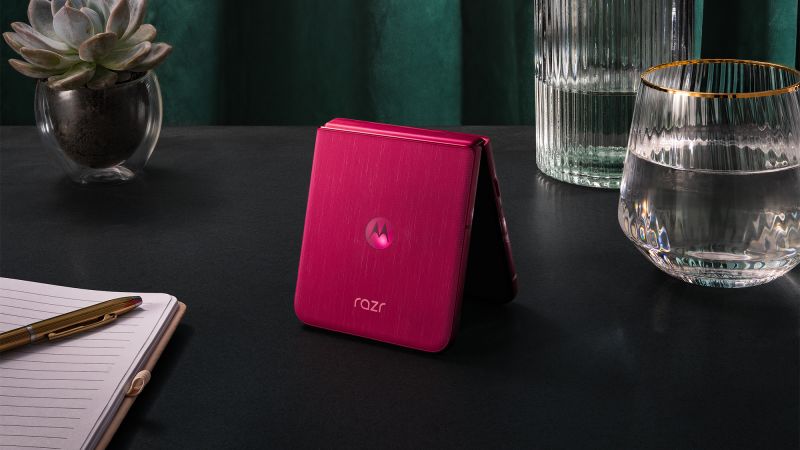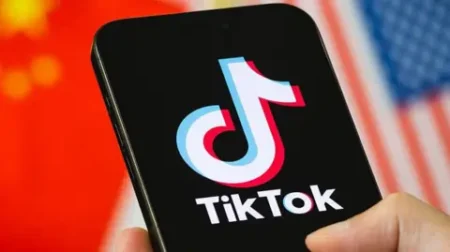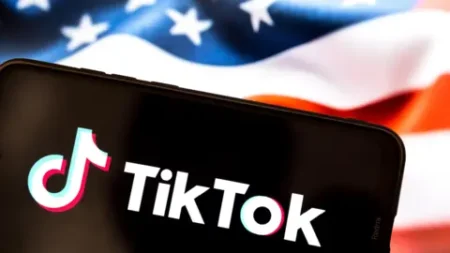On Thursday, March 15, 2023, Motorola made significant strides in smart technology by unveiling new models of its iconic Razr flip phone. The latest iterations, namely the Razr, Razr Plus, and Razr Ultra, are infused with advanced artificial intelligence capabilities, powered by Motorola’s proprietary technology in collaboration with well-known tech giants like Perplexity, Meta, Microsoft, and Google. This development comes at a pivotal time in the tech industry as it marks an ambitious effort by Motorola to integrate AI into mobile devices, enhancing user experiences.
The unveiling of these phones comes amidst significant legal battles for Google, which has been implicated in a federal case regarding monopolistic practices within the search engine market. Recent court rulings have raised alarms regarding Google’s potential dominance over the evolving AI landscape, given its historical grip on Android through strategic partnerships that have solidified its market position. This context frames Motorola’s initiative, hinting at a future where competitive alternatives could emerge against Google’s powerful presence in mobile technology.
Importantly, the Razr series will be equipped with the Perplexity AI app pre-installed—a first in the smartphone market. Perplexity operates as an AI-driven search engine and research tool, emphasizing the diverseness of AI solutions now available to consumers. According to Aravind Srinivas, CEO of Perplexity, this launch signals a revolutionary shift for smartphones, reflecting how integral AI technologies are becoming in enhancing device functionality and user engagement.
Motorola aims to carve out its niche within the competitive smartphone landscape dominated by the likes of Apple (AAPL) and Samsung, both of which have heavily championed AI advancements in their recent devices. However, Motorola opts for a multifaceted approach, harnessing a diverse range of AI models from multiple providers rather than relying on a singular source. Such an approach is relatively unusual among smartphone manufacturers, making Motorola’s strategy intriguing.
The emphasis on consumer preferences for diverse AI solutions was highlighted by Motorola’s North American product marketing director, Maria Jose Martin, who indicated that about 30% of users engage with multiple AI brands within their smartphones. This trend of integration across different platforms signals a growing consumer market that seeks versatility and enhanced features powered by AI.
Motorola’s new Razr phones are designed to go beyond traditional functionalities. They include innovative AI tools capable of analyzing on-screen content to offer valuable suggestions and concise summaries of notifications. For instance, the ‘Next Move’ feature employs Perplexity’s technology to assist users in generating content for various needs, such as crafting engaging invitations for parties.
The Razr Ultra, priced at $1,300, stands out as the premium offering of the trio, equipped with an AI assistant that activates based on user attention rather than touch commands—an interface that speaks to the modern demands for seamless interaction between humans and devices. This feature operates effectively even when the phone is partially folded, underscoring Motorola’s commitment to intuitive design.
Moreover, the inclusion of Google’s Gemini assistant, Meta’s Llama AI model, and Microsoft’s Copilot showcases a comprehensive strategy to integrate cutting-edge features into the Razr lineup. Notably, absent from this collaboration is OpenAI, the parent company of the popular ChatGPT assistant. When questioned about this exclusion, Motorola’s head of North American product portfolio, Allison Yi, emphasized the importance of selecting technologies that complement Motorola’s objectives rather than simply integrating popular options.
The announcement of these new devices occurs at a crucial juncture for both the Android ecosystem and the broader market of consumer electronics. As Google faces scrutiny in court regarding potential monopolistic practices, the question of equitable access to technology looms large. With ongoing debates surrounding high tariffs on imported goods—particularly affecting tech products manufactured in China—Motorola has taken steps to maintain competitive pricing for the Razr lineup in line with market expectations. The pricing for the Razr series stands at $700 for the base version, $1,000 for the Razr Plus, and $1,300 for the Ultra model.
In navigating these challenges, Motorola benefits from the versatile supply chain of its parent company, Lenovo, allowing flexibility in production locations to mitigate the impacts of tariffs. By strategically addressing market dynamics, Motorola aims to remain adapted and responsive, reflecting its commitment to delivering high-quality, AI-empowered devices to consumers while battling industry-wide pressures.











